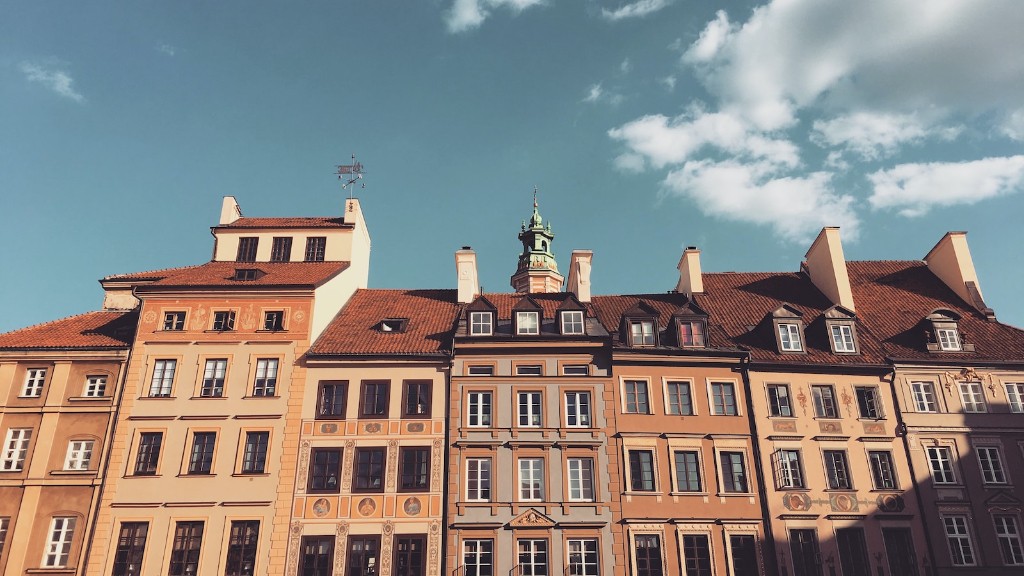Poland has often been accused of being anti-semitic. The issue has been brought to the headlines of international newspapers and has become a heated debate among academics and politicians. There have been various opinions about this subject, yet this article will provide an in-depth analysis of the claims and opinions about Polish anti-semitism.
When it comes to the origins of claimed Polish anti-semitism, it is widely accepted that the persistent prejudice against Jews has been shaped from centuries of what is known as “Polish historical memory”. This is a collective representation of Polish-Jewish relations which highlights the conflicts between the two which have taken place since the fifteenth century. Since then, this historical identity has become an ideological backbone among Poles, and according to some, has been the basis of rationales which feed anti-Semitic sentiment among certain members of Polish society.
Stefan Taylor, a historical philosopher, comments on the impact which this representation of the past has had on contemporary poliitcal life. He states that “the historical memory of Polish-Jewish relations has been instrumental in dictating people’s political opinions on this matter today. The way in which the massacres and traumas of the past are remembered and retold has highly impact on the way Poles think and act on this issue now”. This highlights the impact which the legacy of the past can have on the opinion of people in the present.
Economist Kasia Sobieńska has explored how certain official policies have had a lasting effect which may be seen as anti-semitic. She has focused on the expulsion of Jews from Poland in the 18th and 19th centuries and the discrimination which took place when it was reintroduced as a homogeneous nation after the Second World War. For example, the 1947 Anti-Zionist Campaign in Poland was an official movement which aimed to discredit and ostracise Jews within the nation. The result of this movement was the persecution and displacement of thousands of Jewish citizens.
Moreover, another factor which has been linked to alleged Polish anti-semitism is the strong presence of religious anti-Semitism. The conservative, Catholic ideologies present within Polish society have been seen as a major influence in the negative opinions people have towards Jews. Some believe that this form of faith-based prejudice has been normalized within Poland. Additionally, according to political scholar Magda Czerniawska, “in recent years, the discourse of the Polish Churches has been increasingly anti-semitic.” She also claims that religious anti-semitism is concealed within many social contexts, thus making it harder to confront and challenge.
It is clear to see that the accusations of Polish anti-semitism are centered on how historical memory, certain government policies and religious prejudices have impacted the current state of the nation. It is important to note that while anti-semitism is present in certain occasions and contexts, not all Poles are anti-semitic, and indeed many people in the country are working to combat any prejudice or discrimination. However, it is clear that it is essential for Poland to address this issue in their policies and education in order to ensure a safe and welcoming environment for everybody.
Anti-Semitism among Populists
Populism has become increasing present within Polish politics and according to researchers like Justyna Muszyńska, the opinions expressed by those who adhere to these ideologies are always permeated by prejudice and intolerance. She highlights the concerning factor of how this has been especially linked to the anti-semitic atmosphere which has become normalised within the Populist movement.
However, it is not just the opinion of Populists which influence the view of Jews within Poland. Political psychologist Ekaterina Shneider claims that anti-semitism is promoted within the media outlets, which aim to portray religious minorities as inferior and to justify further the actions of bigger anti-semitic organisations. For this reason, news agencies and propagandists are seen as a force in creating this mindset as they are capable of reaching and influencing a large population. Therefore, it is key to be aware of how this can play a role in the forming of anti-semitic opinions.
Ultimately, although the levels of anti-semitism within Poland are said to be high, it is important to remember that the beliefs of certain groups and political parties do not reflect the opinions of every citizen in Poland. Politicians such as Grzegorz Schetyna, the leader of the Polish political party Civic Platform, are among the many people in Poland who are speaking up to condemn anti-semitism and to push forward a plea for respect and acceptance. Moreover, organisations like WILPF Poland are pushing for change by calling for more inclusive and plural policies which will ensure that the rights and help of all minority groups are met.
The Legacy of the Holocaust
It is widely known that during World War II, Poland was occupied by Nazi forces and that during this time, many Jews were killed by the hands of the Germans. After the War, Poland faced an extreme shortage of funding and was consequently incapable of caring for the few Jewish survivors. This unfortunately resulted in a huge number of Jews leaving the country, thus leaving an minority which was neither acknowledged nor defended by the government.
In recent years, this issue has become the center of international debates, especially in terms of accusing Poland of having done too little in terms of protecting Jewish citizens during the Holocaust. As a result, there have been increasing calls for Polish government to take action, firstly in terms of recognising the trauma which both Poles and Jews experienced during this time.
Furthermore, for many Jews, Poland still remains an unattractive place to reside due to the fears of re-experiencing prejudice and discrimination. For this reason, some Jewish organisations have called for further support and the provision of certain reparations and privileges in terms of housing and education.
In addition, there have been attempts to create a museum dedicated to the Holocaust in order to commemorate the victims and for Jews to remember and connect with this period of their history. However, due to the lack of enthusiasm of both the government and the citizens, this has been an extremely slow and difficult process.
Educational Measures
Education is seen by many as a major source of re-democratising Poland and refuting claims of anti-semitism. Scholars such as teacher Junius Spong highlight that it is only through the acknowledgement and teaching of history which “focuses on the victims and those who have been harmed, not just those who have been in power” can students learn to maintain a society of inclusion and acceptance.
That being said, it should be noted that some efforts by the Ministry of Education to implement formal Holocaust education have been made in recent years. The Holocaust Education Act from 2018 outlined the obligation of local independent schools to teach about the Holocaust, as well as teaching about the traumatic experiences of other minorities such as Roma and Ukrainian populations. This is seen as an effective way to ensure that the current population of students are informed on the diversity and shared history of the nation.
Unfortunately however, financial deficiencies and resistance by certain organisations have prevented further implementation of laws which enforce education on this matter. Thus, as of now, the debate and issue is still ongoing, and it is yet to be seen what steps Poland will take in the future.
The International Response
The claims of Polish anti-semitism have placed the country into an international spotlight, namely with the United States recently passing the Global Anti-Semitism Act which outlaws any defamation of Jews. This act no denies Poland of certain aid that it was receiving, yet some suggest that this was an unnecessary and inadequate punishment which did not properly touch the heart of the problem. Furthermore, the Act was met with surprise from some, as the United States itself has a history of anti-semitism in its policies, as seen in the 1934 Labor Appropriation Act which refused visas to anyone “whose life, habits or associations might be held to affect adversely the public safety”.
Thus, it can be seen that the international response to this issue is one which faces two sides. On the one hand, many countries have put pressure on Poland to address this fundamental issue, yet at the same time, many have failed to acknowledge the action they have taken against their own Jewish minorities. In this sense, it is essential to remember that while global attention is important to condemn any form of prejudice, it is unclear what the intention behind this action is and how responsibility should be shared between nations.
The Need to Confront Anti-Semitism
Without a doubt, the Polish anti-semitism debate has placed a spotlight for the world to see. Yet it is essential to remember that this is not an issue which affects only Poland, and that many countries are themselves facing accusations of anti-semitism. Nevertheless, it remains a justified urgency to confront this issue within Poland, in order to ensure a safe and accepting nation for all.
A major step which need to be taken is to ensure that educated initiatives are put in place to govern and condemn anti-semitism. This could be achieved through various measures such as ensuring that Holocaust education is enforced in schools, as well as developing symbols and measurements which will ensure the safe and equal rights of all minorities within the nation.
The debate about Polish anti-semitism is a multi-faced problem which has a complex and deeply rooted history. It is clear that several scores of measure and initiatives must be taken both in Poland and internationally in order to correct this prejudice and create an age of tolerance and inclusivity.
Conclusion
It is evident that the accusations of anti-semitism within Poland present a deeply rooted and complex problem. This issue has been highly controversial amongst international debates, yet if Poland is to effectually resolve this dilemma, it is essential to put aside the politics and focus on the core of the issue by developing comprehensive, informative and educated initiatives to tackle prejudice. In this way, the nation could make a remarkable step towards becoming inclusive and creating a society of acceptance.





